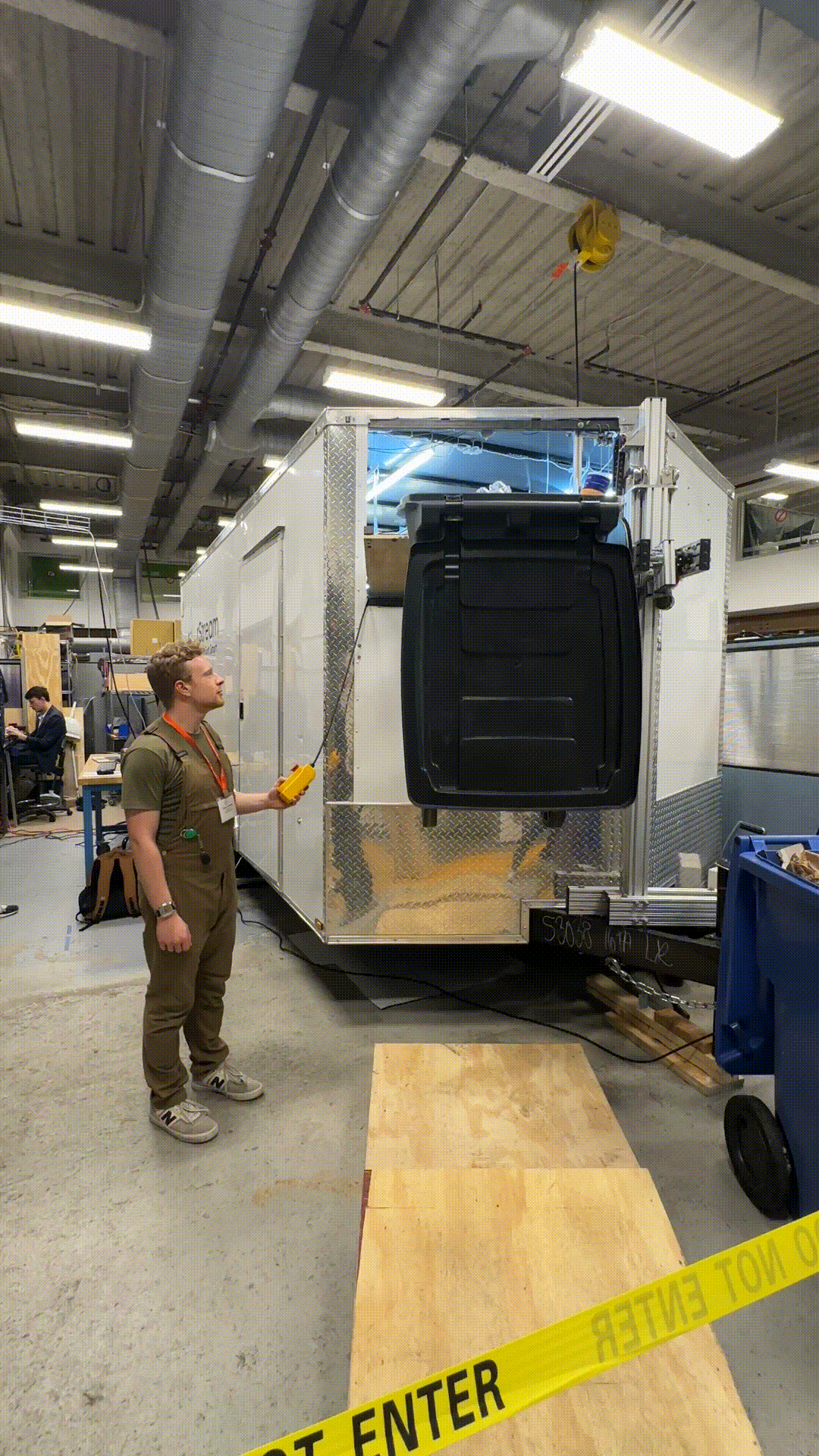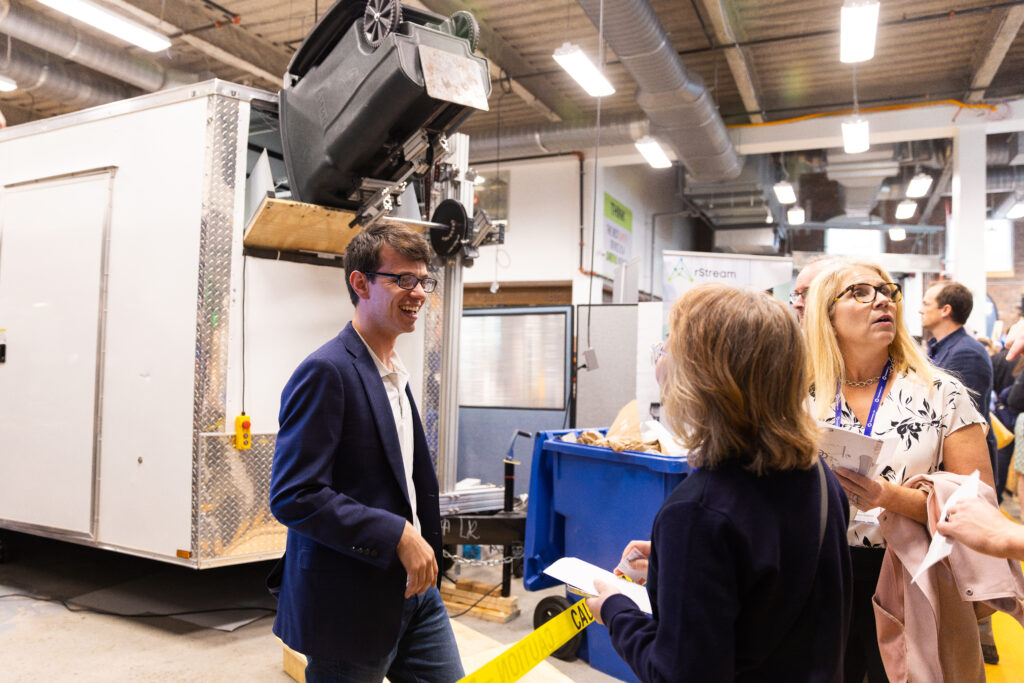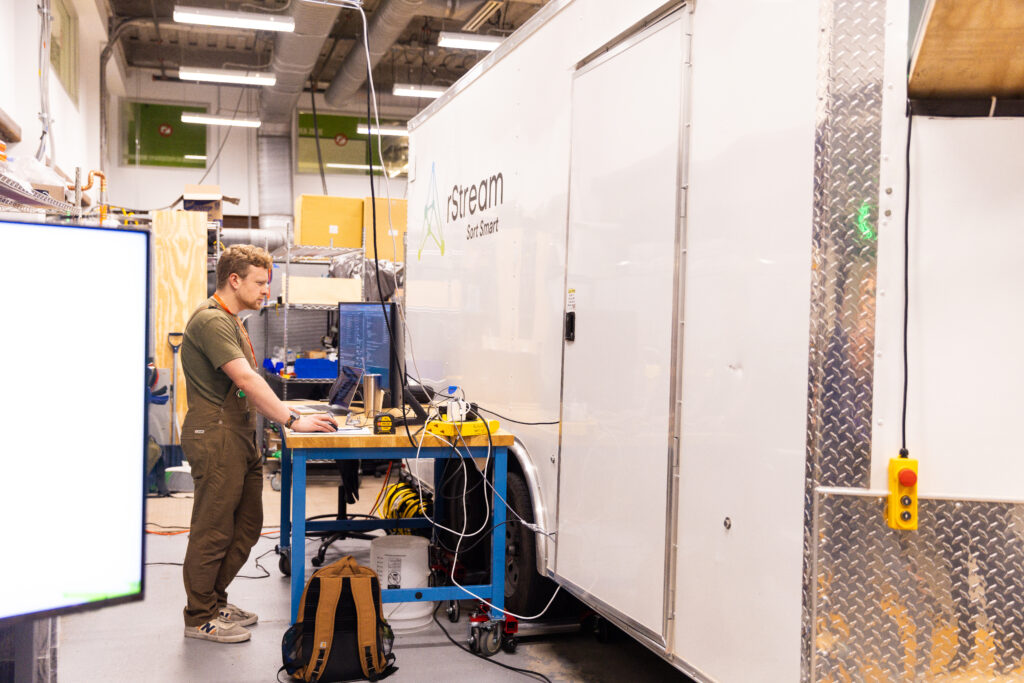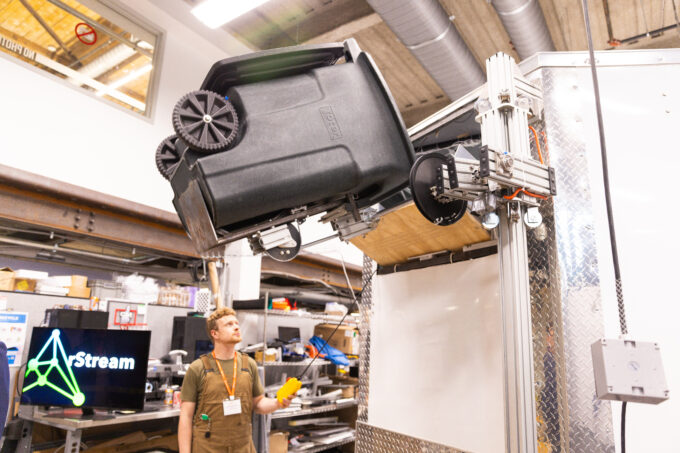It’s no secret that the United States has major recycling problems, resulting in less than one-third of waste being recycled—from customer confusion that leads to trash ending up in the recycling (or vice versa), to the costs of waste-management companies managing this contamination and sorting single-stream waste.
These issues came to the forefront in 2018, when China—which previously bought 70 percent of global plastic waste, according to NPR—announced it would stop buying nearly all recycling from other countries, including the United States. This policy was driven, in part, by high contamination levels in the imported recycling and correspondingly unfeasible recycling costs.
That’s when Ian Goodine and Ethan Walko, then undergraduates in mechanical engineering at the University of Massachusetts Amherst, got interested in what Goodine calls a “fascinating, systems-level problem”—where recycling, a critical tool in decarbonizing the global economy, relies on customer behavior.
The two continued on to graduate school and founded rStream, a startup leveraging computer vision and data science to sort trash, recycling, and compost automatically.
“rStream is putting automated systems before the recycling facility, at their customers, to prevent the recycling-sorting centers from intaking non-recyclable commodities,” says Goodine, the company’s CEO. “If we do that at scale, we are able to make it easier to run recycling centers and make them more profitable.”
rStream is bringing its solution to commercial venues such as stadiums, universities, and airports. These settings have an average capture rate of recyclables of 35 to 50 percent, according to Goodine, which rStream’s tech can increase to more than 90 percent.
The startup offers value to both these commercial venues and to waste-management companies. The venues benefit from lower waste bills (given upcharges for more contaminated waste) and improved sustainability, which can qualify buildings for LEED and other certifications, while the waste-management companies are able to obtain higher-quality material with less contamination and lower processing costs.

rStream recently conducted a week-long pilot of its waste-sorting trailer at the University of Massachusetts Amherst, and has also deployed its tech at other universities and sports stadiums in the state. The trailer can sort one ton of waste per hour.


The revenue-generating startup has chosen not to raise equity funding so far and has received various non-dilutive funding awards—including, in recent months, about $1.3M from the U.S. Department of Energy’s REMADE Institute and a $1M SBIR Phase II award from the National Science Foundation. Goodine and Walko were also named 2024 Activate Fellows.
“[Being at Greentown has] been perfect,” Goodine says. “Commercial real estate would’ve put us in a position where we would’ve needed to finance the company differently, because this isn’t something that grants cover. So being in Greentown, without substantial capital expenses to get started, has allowed us the flexibility to explore what the most optimal solution is for us and our customers. That’s really important to me.”
rStream joined Greentown Boston in 2022, and has since tripled its head count and quadrupled its prototyping lab space inside Greentown’s facilities.
“We are Greentown superusers,” he adds. “We use the space heavily—we use the prototyping lab, we use the machine shop and all it has, we use the desks. We’re here every single day.”


